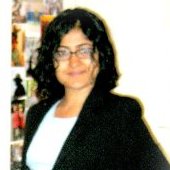Systems Seminar - ECE
Fundamental Limits of Remote Estimation
Add to Google Calendar

In many applications of real-time communication systems such as sensor networks , smart grids, transportation networks , internet of things etc., there are sequential transmissions of data. In such scenarios, a transmitter (sensor) observes a Markov source realization and sends its observation to a remotely placed receiver, connected by a communication channel. The transmitter is a battery powered device that transmits over a wireless packet-switched network. Switching the radio on is significantly more expensive compared to the sensing and the duration for which the transmitter is kept on. Hence the transmission is intermittent but whenever there is a transmission, the entire source symbol gets transmitted. Whenever there is no transmission, the receiver has to estimate the source realization . In this talk, we characterize fundamental trade-offs between the estimation error (or distortion) and the cost of transmission in such systems.
In particular , we consider the case when the source is a first-order au to regressive process and the transmissions take place over a Markov erasure (or Gilbert-Elliott) channel. We characterize the following two fundamental trade-offs: (a) for costly transmission, what is the minimum expected distortion plus transmission cost and (b) when there is a constraint in the expected number of transmissions, what is the minimum expected distortion. For both cases, we establish the structure of optimal strategies, characterize the optimal performances and provide analytical as well as numerical methods to compute the solution.
Jhelum Chakravorty is a research associate at McGill University. She received B.E. degree in Electrical Engineering from Jadavpur University, Kolkata, India, M. Tech. degree in Systems and Control Engineering from Indian Institute of Technology Bombay, India and Ph.D. in Electrical and Computer Engineering from McGill University, Montreal, Canada. She is the recipient of the best student paper award at the 2016 IFAC workshop on Networked Control Systems (NecSys). Her research interests are stochastic control, decentralized systems and real-time communication.
 MENU
MENU 
